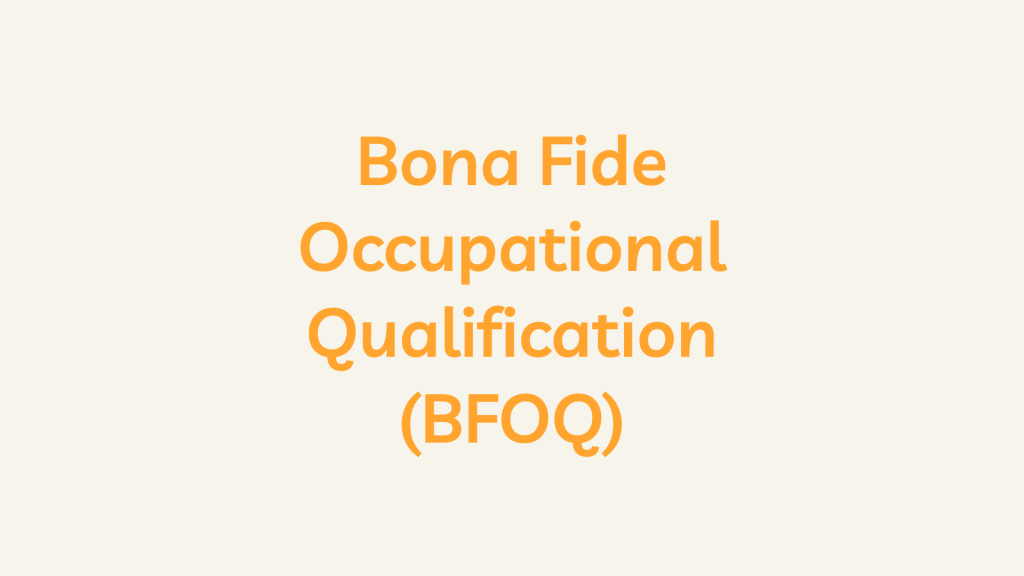What is a Bona Fide Occupational Qualification (BFOQ)?
A Bona Fide Occupational Qualification (BFOQ) is a legal exception to anti-discrimination laws that allow employers to make employment decisions based on a protected characteristic, such as race, sex, religion, or national origin when a particular characteristic is essential to the job. BFOQ is a narrowly defined concept and is meant to provide employers with flexibility in certain situations where a protected characteristic is a legitimate requirement for performing a specific job.
Key points about Bona Fide Occupational Qualification include
- Protected Characteristics: Anti-discrimination laws, such as Title VII of the Civil Rights Act of 1964 in the United States, prohibit discrimination based on certain characteristics, including race, color, religion, sex, and national origin. BFOQ is an exception to these general prohibitions.
- Essential Job Requirements: To claim a BFOQ defense, an employer must demonstrate that a specific protected characteristic is a legitimate and necessary qualification for the job. The characteristic must be essential to the performance of the job duties.
- Examples of BFOQs: BFOQs are narrowly construed and limited to situations where the protected characteristic is integral to the job. For example:
- Hiring only female actors to play female roles in a theater production or film.
- Assigning a male correctional officer to supervise male prisoners in a correctional facility.
- Legal Limitations: BFOQ is a limited exception, and employers must be cautious not to use it as a pretext for discrimination. The burden is on the employer to show that the requirement is a legitimate job qualification.
- Religious Organizations: In certain cases, religious organizations may be allowed to consider religion as a BFOQ for certain positions within the organization, especially if the job involves religious duties.
Conclusion
It’s important to note that using Bona Fide Occupational Qualification (BFOQ) is a legal defense and may be scrutinized by courts or regulatory agencies. Employers should exercise caution and seek legal advice when relying on BFOQ exceptions to ensure compliance with anti-discrimination laws.
Employers are generally encouraged to focus on the qualifications and abilities of candidates rather than their protected characteristics, and they should only rely on BFOQ in situations where it is truly necessary for the effective performance of the job.
